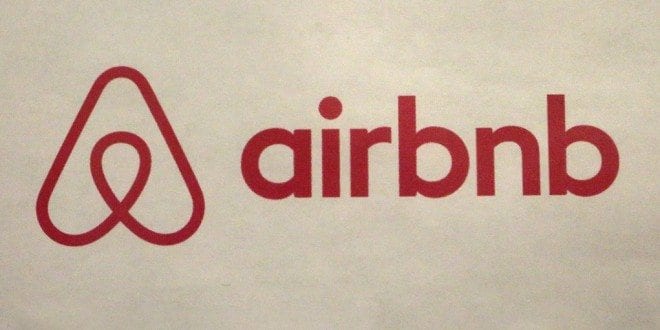
Home-letting platform Airbnb has experienced rapid growth since its inception in 2008, but what do its 80 million room nights mean for the traditional hotelier’s market share?
In an industry as old as hospitality, it is notoriously difficult to conceive of an environment where a new disrupter truly capable of making waves will next materialise. Before the internet, no-one could have foreseen the rise of the OTAs, much less accurately predicted how entrenched their presence would become for practically every operator.
While Airbnb may not have fundamentally transformed the sector yet, some forward-thinking hoteliers are starting to see this relatively young company as a threat not just to their own occupancy rates, but particularly to RevPAR.
The peer-to-peer accommodation platform has grown significantly during its short life. Launched just seven years ago in 2008, the firm now boasts more than 60 million guests per year in 34,000 cities, across 190 countries. According to Reuters, the number of nights booked through the platform this year is set to top 80 million nights – double the 40 million reportedly booked in 2014.
THE CONCEPT
Airbnb is just one of a number of leading companies in the much-discussed ‘sharing economy’, the phenomenon based on platforms which allow users and vendors to transact for services directly. Cab-booking service Uber is among the concept’s prominent success stories. In essence, a ‘platform’ firm billing itself as a logistics business, allows drivers and passengers to find each other quickly using a smartphone app.
Airbnb is similar in that it allows ‘hosts’ to let their room, flat or house through the website, and travellers can search for properties listed by these private hosts. The appeal to travellers is that they can ‘live like a local’ in any city around the world (and it is often cheaper all-in than staying in a tourist-heavy area). The appeal to hosts is that they can make extra cash by listing their property and vacating it. Indeed some of Airbnb’s own advertising points to the neat solution of letting your flat and using the money to pay for your own holiday simultaneously. Ideally in another Airbnb. Rooms and apartments are often listed at a cheaper rate than traditional hotels, and Airbnb’s ease-of-use and strong brand image have made it a popular option among leisure guests.
However the utility of the site is by no means confined to the leisure market. The firm reported earlier this year that demand from business customers is growing, with a record-number of corporate sign-ups – a type of guest with which the hotel industry has long enjoyed a functional monopoly. Within 24 hours of the debut of its new ‘corporate dashboard’ in August this year, more than 500 companies joined its ‘Airbnb for Business’ programme. More than 1,000 – including Google – from over 35 countries around the world are now using Airbnb as part of their corporate travel programmes.
Last month Hotel Owner covered a piece of analysis from hotel data company STR Global, which claims that Airbnb has a “significant” and growing share of the visitor accommodation market in London. STR used figures from independent data compiler, Inside Airbnb, and took the 25,361 units listed in London estimating that there were 11,000 Airbnb listings that were “competitive” with London’s 134,000 hotel rooms. This represents an 8% share of the market.
In essence the worry for hoteliers is that the increasing number of trips that use an Airbnb listed property rather than a hotel will either erode business directly, or perhaps a more likely scenario in the short term is that cheaper rates from properties listed on the platform will drive down average room rates for hotels. Arguably this puts the budget sector most at risk as the market evolves.
This is not to induce panic: the hotel market in London continues to grow in tandem with Airbnb. But it is difficult to tell whether this growth would be even more pronounced without the growth of Airbnb. And do services such as this appeal to a new group of consumers that otherwise would not have travelled in the first place, or is it eating into the hotelier’s traditional customer base? Airbnb is naturally reluctant to come down on either side, but says: “We strongly believe that we’re complementary to the tourism industry. We can help to grow and diversify tourism, we’re giving more and more people the chance to travel.”
THE LANDLORD ISSUE
Airbnb has come under scrutiny over the last couple of years after authorities in New York began challenging people using it as a way of becoming a ‘landlord’ without permission to do so. The city’s attorney general filed two subpoenas saying that by using the platform to rent out their homes, they were essentially running ‘illegal hotels’, and that in doing so they were avoiding paying occupancy taxes which are applicable in the state. The problem in New York is that it is illegal to rent out your home without actually remaining present in the property while the guest/lodger is staying there. For owners of studio apartments or one-beds who were letting the properties, this is obviously not a rule they were adhering to.
Airbnb has itself described this practice as akin to “illegal hotels”. Martin Couchman, deputy chief executive at the British Hospitality Association (BHA), calls it the industrialisation of short-term renting. “The issue all the way throughout this has not been the individual letting their property,” he says. “It has been the industrialisation of this.” There are some reports suggest that properties such as large blocks of flats have been functionally transformed into hotels.
It is important to stress that Airbnb does offer advice to its users on making sure that they comply with local laws, and the firm’s CEO, Brian Chesky, even wrote a blog on the matter, saying that his firm was drawing up plans for clamping down on misuse. But when speaking to Hotel Owner, a spokesman would not offer specific examples of what would constitute an offence for which a user would be barred from using the platform.
But, supporters might say, Airbnb is only a platform – the responsibility for using the platform in legally compliant ways rests with the user, right? This is of course true: Airbnb cannot be held responsible for every instance of a user cheating the system. But the criticism in the UK market comes from a feeling that the traditional hotelier carries the burden of having to be compliant with fire, health and safety legislation, and pay public liability insurance and business rates. If Airbnb users operating ‘illegal hotels’ are not facing similar obligations, then the playing field is not level.
Read rest of the article at: Hotel Owner




